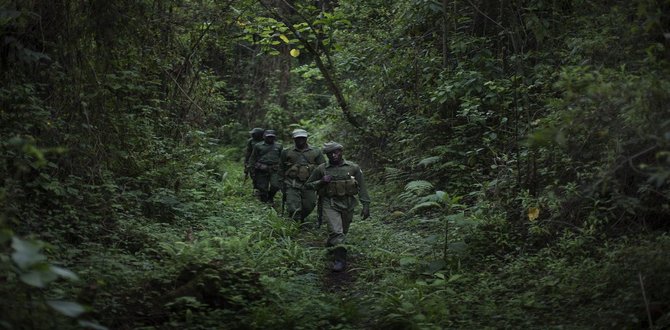Small firms that have faced repeated exposure to extreme climate events are more likely to develop adaptation responses, write Florence Crick and Shaikh Eskander.
Climate change poses increasing risks to economic growth and development across the world and particularly in developing countries. A critical issue is the extent to which private actors, and especially businesses, are able to adapt to climate risks. In Africa, the private sector generates two-thirds of the continent’s investment, 75 per cent of its economic output and 90 per cent of its formal and informal employment.
Micro, small and medium enterprises (MSMEs) dominate the business landscape in both developed and developing countries. In sub-Saharan Africa (SSA) three of every four workers are employed in micro and small enterprises. In Kenya, for example, MSMEs employ around 80 per cent of the workforce and contribute 20 per cent to GDP.
However, these businesses are highly vulnerable to climate change. They are amongst the most affected by extreme weather events, such as drought and floods, and tend to have low capacity to adapt to these events, which will become more frequent and intense due to climate change.
Experience of climate extremes leads to more adaptation by MSMEs
To find out how MSMEs are responding and adapting to extreme weather events we surveyed 325 businesses in the agriculture and trade and processing sectors in the semi-arid regions of Senegal and Kenya.

The results, now published in World Development, reveal that the businesses we surveyed have a range of strategies to deal with extreme weather events. Just under half of the firms (45.2 per cent) have adopted some ‘sustainable adaptation’ measures which seek to maintain business operations at existing levels, for example by taking out a loan or switching to a different crop or commodity. Another quarter (25.6 per cent) of MSMEs have resorted to business contraction strategies, such as reducing number of employees or selling assets at a loss, in the face of extreme events. We call these measures ‘unsustainable adaptation’.
The MSMEs we surveyed are heavily exposed to climate risks and on average have faced two climate extremes in the last five years. In our research we have found that MSMEs that have faced repeated exposure to extreme climate events are more likely to develop adaptation responses (both sustainable and unsustainable).
However, the more frequent the occurrence of extreme events the more the balance shifts from sustainable towards unsustainable adaptation. This suggests that there is a point where MSMEs’ ability to respond gets eroded when they face too many extreme events and that there may be limits to how effective sustainable adaptation can be.
External business environment affects adaptation strategies by MSMEs
There could be a number of factors that affect the ability of businesses to adopt sustainable adaption strategies. These can include the internal firm characteristics and external business environment. For instance, organisational capacity, skill levels of entrepreneurs, gender of entrepreneur are internal characteristics. Access to loans, access to markets, access to government subsidies are all factors within the external business environment.
Our research shows that the business environment has the strongest effect on the adaptation choices firms make. Factors that are conducive to enterprise development shift the balance from unsustainable adaptation towards sustainable adaptation, while defects in the business environment have the opposite effect.
In particular, financial barriers, which are experienced by over three quarters (78 per cent) of the MSMEs we surveyed, lead very strongly to unsustainable business contraction strategies.
At the same time, access to information, general government support, and adaptation assistance (financial, technical or material support) from national government, local government, NGOs and friends and family all dramatically increase the likelihood that MSMEs adopt sustainable adaptation measures.
The link between internal firm characteristics and the type of adaptation measures firms put in place are not as significant. Nevertheless, our survey still found a positive relationship between higher management skills and organisational capacity on the one hand and adaptation action (both sustainable and unsustainable) on the other. We also found that trained entrepreneurs relied more heavily on sustainable adaptation and that larger MSMEs resorted less to unsustainable measures.
Businesses with sustainable adaptation strategies are more likely to plan for future adaptation
Climate change will increase the frequency and intensity of extreme weather events. Impacts in sub-Saharan Africa and its semi-arid regions are likely to be severe. It is vital that businesses not only adapt now but also plan for future adaptation. When it comes to future planning only 38.5 per cent of the businesses we surveyed have started to plan for climate change. Our survey showed that MSMEs currently engaging in adaptation practices are more likely to plan for future climate change, thus reducing their long-term vulnerability to climate risk.
The likelihood of future planning is also higher for those adopting sustainable adaptation practices over unsustainable ones. In addition, these firms are more likely to plan for climate change if they receive support from local government agricultural information services.
We also find that lack of sufficient climate information and relevant data on climate change is a significant barrier preventing MSMEs from planning for future climate change. This confirms that businesses are constrained in their ability to develop and implement long-term adaptation measures and often lack the knowledge required for future planning.
There is a clear role for public policy to support private sector adaptation
There is a clear role for public policy in helping to support MSMEs to adapt. The ability of firms to respond to climate risks depends heavily on factors, such as business environment, that can be shaped through policy intervention. Indeed, national and local governments, supported by NGOs and international development agencies, need to provide the right enabling conditions for private sector adaptation.
Our previous work has already highlighted that governments can provide the right enabling conditions to support the private sector in SSA’s semi-arid regions to adapt. In particular, governments need to provide, at the very least, favourable conditions in relation to the following four ‘building blocks’: Policies and institutions; infrastructure and markets; data, information and capacity development; and the economic and financial environment. Many elements within these building blocks are missing in SALs.
Within these blocks, governments need to provide initiatives that specifically support businesses’ ability to adapt to the impacts of climate change while also addressing the broader structural and development deficits that hinder business development. For example, there needs to be greater coordination of national adaptation policies and business development policies. In addition, governments need to broaden finance opportunities for developing businesses to more inclusively target the diversity of private actors in semi-arid regions, including women’s collectives and informal MSMEs. Governments should also provide climate information services and adaptation options targeted to the needs of businesses in semi-arid regions.
The benefits of supporting private sector adaptation are immediate as well as long-term. The more firms engage in sustainable adaptation behaviour and plan for future adaptation the more resilient they will be to future climate risk. There are also benefits for the communities where businesses are based. Businesses have the potential to support broader climate resilient development and adaptation within their communities. This represents a potential opportunity for the governments of developing countries to unlock broader sustainable and climate resilient development in SALs through the private sector.
This article was first published on the LSE Business Review.
This research is part of the ‘Pathways to resilience in semi-arid economies’ (PRISE) project, under the Collaborative Adaptation Research Initiative in Africa and Asia (CARIAA) with financial support from the UK Government’s Department for International Development (DfID) and the International Development Research Centre (IDRC), Ottawa, Canada.
Florence Crick is a research officer at LSE’s Grantham Research Institute on Climate Change and the Environment and leads the PRISE work on ‘Enabling environment for private sector/multi-stakeholder action to strengthen resilience to climate change’. Her research aims at deepening understanding of how private sector actors can contribute to inclusive climate-resilient development, how businesses are adapting to climate risks, and how the public sector and multi-stakeholder partnerships can incentivise this process. She will be presenting the findings of her latest research, now published in World Development, at the Adaptation Futures conference in Cape Town next month.
Shaikh Eskander is a visiting research fellow at Grantham, where he previously worked as a research officer, and a lecturer in economics at Kingston University London. He is an applied microeconomist with primary research focus in environmental, natural resource and development economics.
The views expressed in this post are those of the author and in no way reflect those of the Africa at LSE blog, the Firoz Lalji Centre for Africa or the London School of Economics and Political Science.





